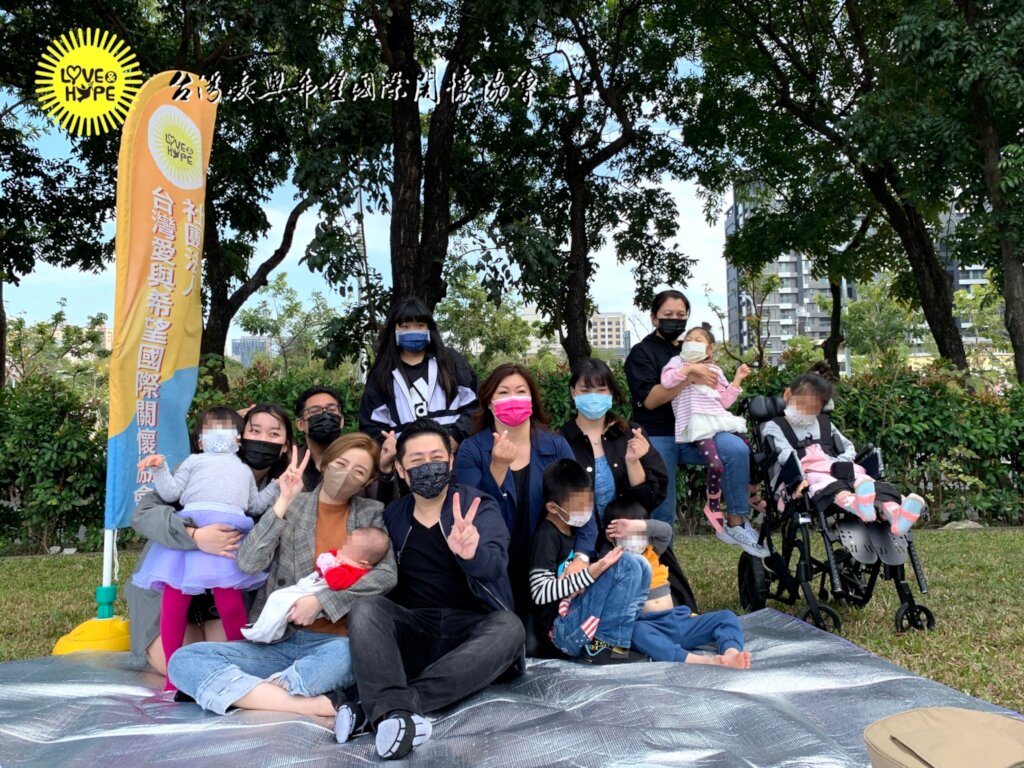By Dr. Joseph Anthony Narciso Z. Tiangco | Founder/Chairman of the Board
“There is no greater disability in society, than the inability to see a person as more.”
– Robert M. Hensel
“Due to insufficient funds brought about by the economic impact of the COVID-19 pandemic, we face the dilemma of running out of food. I implore all sectors of Taiwanese society to give us a hand." This appeal was made by the founder of the Taiwan Love and Hope International Charity, Hsin-Ting Teng. The organization takes in severely maltreated and neglected Taiwanese children.
She emphasized that the children’s home does not refuse to accept children with severe autism and other debilitating disabilities. Currently staying at the Taiwan Love and Hope Children's Home are children with severe mental and behavioral problems coming from various counties and cities in Taiwan. All of them came from difficult backgrounds. The organization has more than ten staff members tasked with taking care of them in three shifts.
The ongoing pandemic and recent lockdowns have significantly affected charity donations. The organization continues to struggle to get government support. Unfortunately, salaries, rent, and other expenses are inevitable in keeping the organization afloat. Financial assistance and support in reaching out to as many people in different parts of Taiwan are urgently needed. There is an urgent need to let more Taiwanese people know about the plight of the children's home and the efforts being made to provide unwanted children with a nurturing and loving environment. Sadly, the organization's funds left to pay the staff’s salaries will only last for a few more months. It is a sad reality confronted by small organizations affected by the pandemic like the Taiwan Love and Hope International Charity. Despite the many challenges, the organization remains hopeful for the children's sake. It will keep working very hard for the children as long as possible.
When famous Taiwanese music artists Ai Cheng and Wang Tong heard the news, they did not hesitate to visit the children's home on the third day of the Chinese New Year and gave the children red envelopes and snacks. Ai Cheng said that he was deeply moved by the words of the founder, Hsin-Ting Teng, as she mentioned, “I want children that the world does not want!” Touched by the plea, Ai Cheng discussed with Wang Tong how they could bring hope to the children so that they can have a happy Chinese New Year holiday!
In January, Ai Cheng also performed in the outdoor concert organized by the Taiwan Love and Hope International Charity at the Kaohsiung Arena. Speaking of abused children, Ai Cheng mentioned, “Parents may have difficulties, but children are by no means a punching bag.” Wang Tong hopes to do her best to help such abused and neglected children get out of the vicious storm. Wang Tong has an important message for everyone, “...we must continue to care and help with a long-lasting concern for the children. The children deserve more attention. Therefore, I hope that at the beginning of the Year of the Golden Tiger, I can help inspire more people to offer assistance and care!” Wang Tong laughed and said that with the delicious food and the sunshine in Kaohsiung, Ai Cheng had temporarily forgotten about the pressure of running a restaurant in Taipei.
The organization is aware that the COVID-19 pandemic has been difficult for everyone. Nonetheless, the organization truly needs everyone's support and understanding. The Taiwan Love and Hope International Charity is the children's only hope so that they do not get lost and neglected in Taiwan's bureaucratic social welfare system. Without the organization, children as young as two years old are most likely to be institutionalized in an elderly nursing home, depending on the severity of their disability.
The organization has opened its doors to children with different neurodevelopmental disabilities. If the Taiwan Love and Hope Children's Home was not around, the children would most likely have been sent to a nursing home for long-term care. It is the accepted norm to institutionalize children with severe neurodevelopmental disorders in a nursing home facility because most orphanages think that it is too difficult to take care of them. In nursing homes, the children are medicated most of the time in order to keep them compliant to the system.
We want the children staying at our home to enjoy the company of other children and their loving caregivers. In the past 3 months, we have made it a point for them to start going to school. We bring them out for lunch or dinner in the mall during the weekends. They often play in the park and go swimming. Despite the severity of their disability, we believe that the children should not be invisible. They stand to benefit from being properly socialized by frequently seeing people in different social contexts. Yes, the children's meltdowns in public have always been difficult but it also gives them the opportunity to observe how other children handle frustration. We have a long way to go but we surely are enjoying every moment in being the light of love and hope for the children entrusted to us.
Links:
Project reports on GlobalGiving are posted directly to globalgiving.org by Project Leaders as they are completed, generally every 3-4 months. To protect the integrity of these documents, GlobalGiving does not alter them; therefore you may find some language or formatting issues.
If you donate to this project or have donated to this project, you can receive an email when this project posts a report. You can also subscribe for reports without donating.
Support this important cause by creating a personalized fundraising page.
Start a Fundraiser



